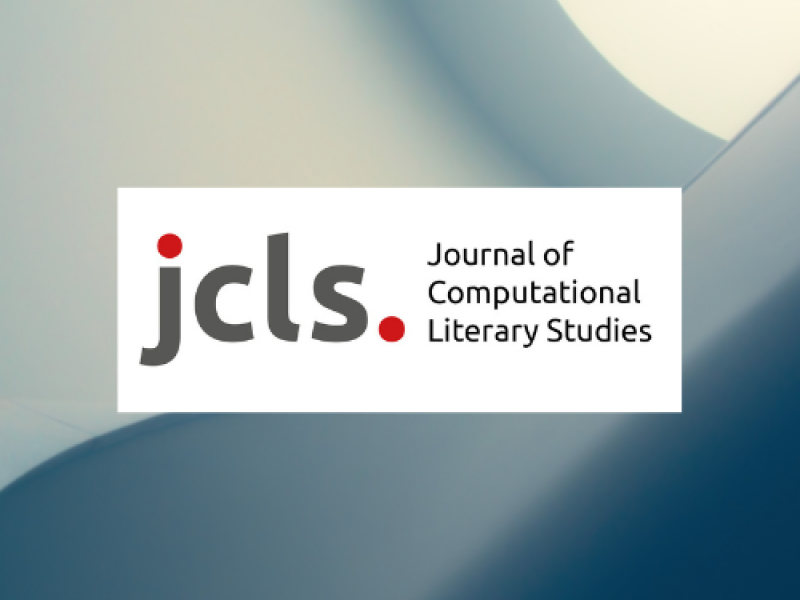Conference: “1st Annual Conference of Computational Literary Studies”

Date:
01.06.2022 bis 02.06.2022Place:
The conference will take place in Darmstadt. It is also possible to participate in the conference online.
Registration is possible until 15 May 2022.
Categories:
ConferenceContact:
Prof. Dr. Christof SchöchFurther Information:
1st Annual Conference of Computational Literary StudiesConference Programme
Wednesday | June 1, 2022
1:00 p.m. to 2:15 p.m. | Session 1
- Opening
- Judith Brottrager*, Annina Stahl, Arda Arslan, Ulrik Brandes, Thomas Weitin: Modeling and Predicting Literary Reception – A Data-Rich Approach to Literary Historical Reception
- Marijn Koolen, Julia Neugarten, Peter Boot*: ›This book makes me happy and sad and I love it‹ – A Rule-based Model for Extracting Reading Impact from English Book Reviews
2:45 p.m to 4:15 p.m. | Session 2
- Leonard Konle*, Anton Ehrmanntraut, Thora Hagen, Fotis Jannidis, Simone Winko, Merten Kröncke: Modeling and Measuring Short Text Similarities – On the Multi-Dimensional Differences between German Poetry of Realism and Modernism
- Chiara Palladino*, Farnoosh Shamsian, Tariq Yousef: Using Parallel Corpora to Evaluate Translations of Ancient Greek Literary Texts
- Keli Du, Julia Dudar*, Christof Schöch: Evaluation of Measures of Distinctiveness – Classification of Literary Texts on the Basis of Distinctive Words
4:45 p.m. to 5:45 p.m. | Session 3
- Almas Abdibayev*, Daniel Rockmore, Yohei Igarashi, Allen Riddell: Limericks and Computational Poetics: The Minimal Pairs Framework – Computational Challenges for Poetic Analysis and Synthesis
- Melanie Andresen, Benjamin Krautter, Janis Pagel, Nils Reiter*: Who Knows What in German Drama? A Composite Annotation Scheme for Knowledge Transfer – Annotation, Evaluation, and Analysis
7:00 p.m. | joint dinner
Thursday | June 2, 2022
9:15 a.m. to 10:45 a.m. | Session 4
- Anna Mareike Weimer*, Florian Barth, Tillmann Dönicke, Luisa Gödeke, Hanna Varachkina, Anke Holler, Caroline Sporleder, Benjamin Gittel: The (In-)Consistency of Literary Concepts – Formalising, Annotating and Detecting Literary Comment
- Julian Schröter*, Keli Du: Validating Topic Modeling as a Method of Analyzing Sujet and Theme
- Evelyn Gius*, Michael Vauth: Towards an Event Based Plot Model – A Computational Narratology Approach
11:15 a.m. to 12:30 p.m. | Session 5
- Heejoung Shin*, Ted Underwood: Using Word2Vec to Measure the Positive Sentiment Towards the Term “Queer” in Virginia Woolf
- Yvonne Völkl*, Sanja Saric, Martina Scholger: Topic Modeling for the Identification of Gender-specific Knowledge – Virtues and Vices in French and Spanish 18th Century Periodicals
- Closing discussion and farewell
Projects: Zeta and Company

